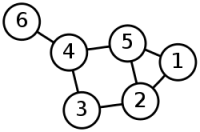WordPress
this article is about the blogging software WordPress

WordPress1) is a free and open source blogging tool and a content management system (CMS) based on PHPPrvi and MySQL. It has many features including a plug-in architecture and a template system. WordPress is used by over 16.7% of Alexa Internet's “top 1 million” websites and as of August 2011 manages 22% of all new websites. WordPress is currently the most popular blogging system in use on the Web.
It was first released on May 27, 2003, by founders Matt Mullenweg and Mike Little as a fork of b2/cafelog. As of December 2011, version 3.0 had been downloaded over 65 million times.
Features
Themes
WordPress users may install and switch between themes. Themes allow users to change the look and functionality of a WordPress website or installation without altering the information content or structure. Themes may be installed using the WordPress “Appearance” administration tool or theme folders may be uploaded via FTP. The PHP and HTML code in themes can also be edited for more advanced customizations. There are several templates, some free, and some premium templates which a user has to buy.
Plugins
One very popular feature of WordPress is its rich plugin architecture which allows users and developers to extend its abilities beyond the features that are part of the base install; WordPress has a database of over 22,000 plugins with purposes ranging from SEO to adding widgets.
Widgets
Widgets are small modules that offer users drag-and-drop sidebar content placement and implementation of many plugins' extended abilities. Widgets allow WordPress developers to add functionality to their sites. These small modules can be used to add functionality such as a slideshow, Facebook Like box, small news slider, and more.
Multi-user and multi-blogging
Prior to WordPress 3.0, WordPress supported one blog per installation, although multiple concurrent copies may be run from different directories if configured to use separate database tables. WordPress Multi-User (WordPress MU, or just WPMU) was a fork of WordPress created to allow multiple blogs to exist within one installation that is able to be administered by a centralized maintainer. WordPress MU makes it possible for those with a website to host their own blogging community, as well as control and moderate all the blogs from a single dashboard. WordPress MU adds eight new data tables for each blog.
WordPress MU merged with WordPress as part of the 3.0 release.
Mobiles
Native applications exist for WebOS, Android, iOS (iPhone, iPod Touch, iPad), Windows Phone, and BlackBerry.
Other features of note
WordPress also features integrated link management; a search engine–friendly, clean permalink structure; the ability to assign nested, multiple categories to articles; and support for tagging of posts and articles. Automatic filters are also included, providing standardized formatting and styling of text in articles (for example, converting regular quotes to smart quotes). WordPress also supports the Trackback and Pingback standards for displaying links to other sites that have themselves linked to a post or article.
Releases
WordPress releases are codenamed after well-known jazz musicians.
| Code name | Relase date | Notes | |
|---|---|---|---|
| <3.2 | We don't have information for earlier versions | ||
| 3.2 | Gershwin | 4 July 2011 | Focused on making WordPress faster and lighter. Released only four months after version 3.1. |
| 3.3 | Sonny | 12 December 2011 | Focused on making WordPress friendlier for beginners and tablet computer users. |
| 3.4 | Green | 13 June 2012 | Focused on improvements to theme customization, Twitter integration and several minor changes. |
| 3.5 | Elvin | 11 December 2012 | Support of the Retina Display, color picker, new theme: Twenty Twelve, improved image workflow |